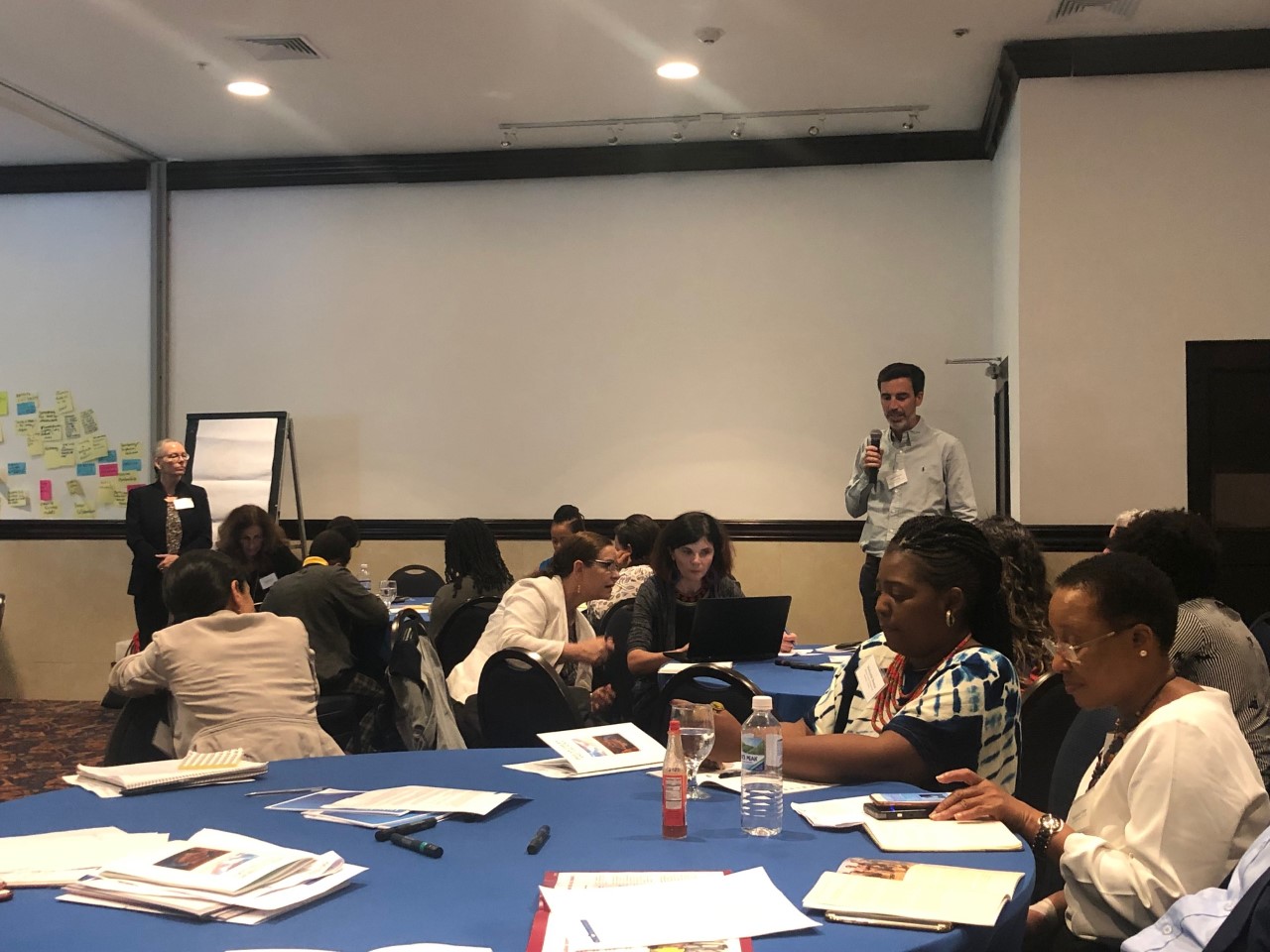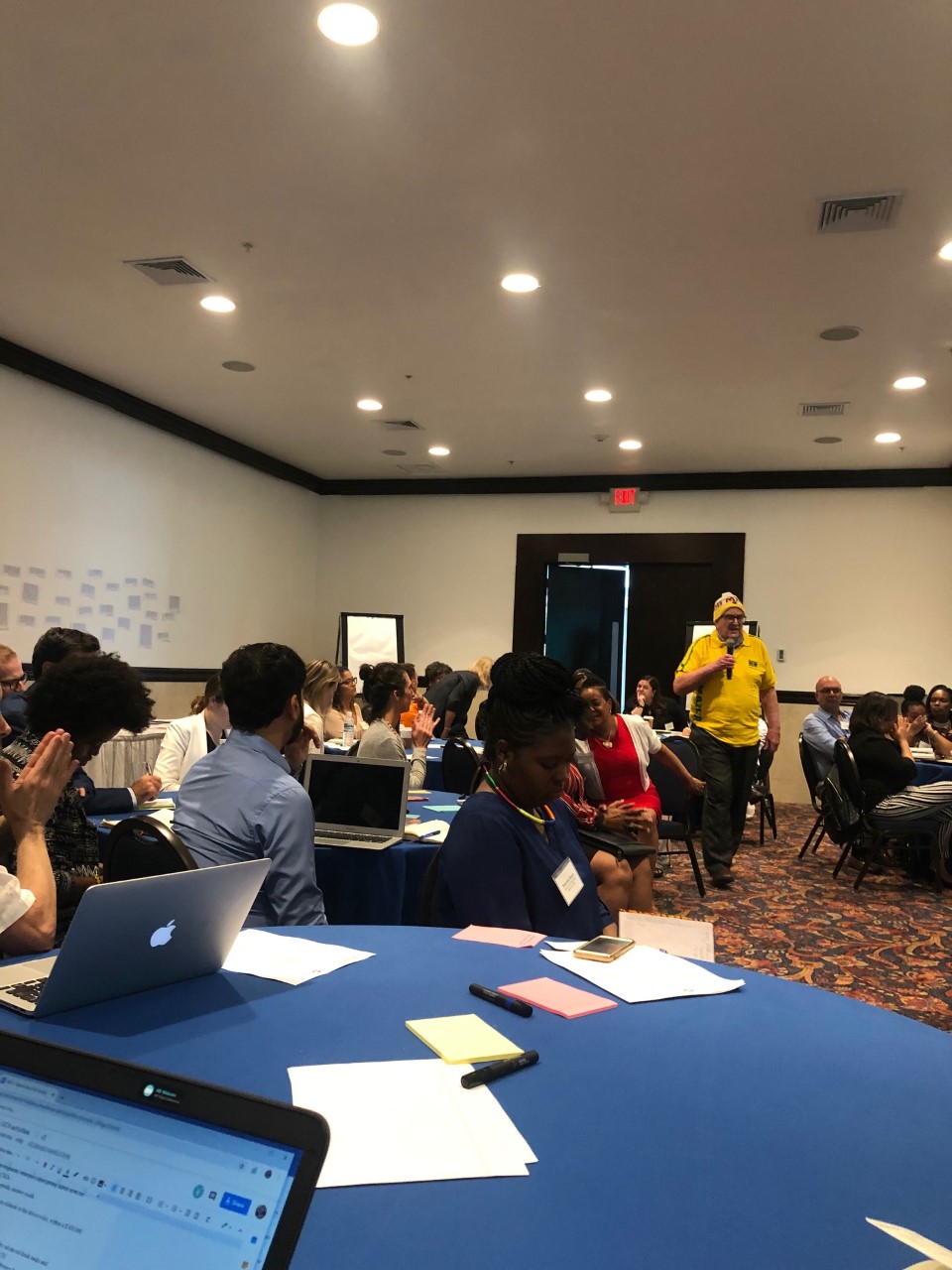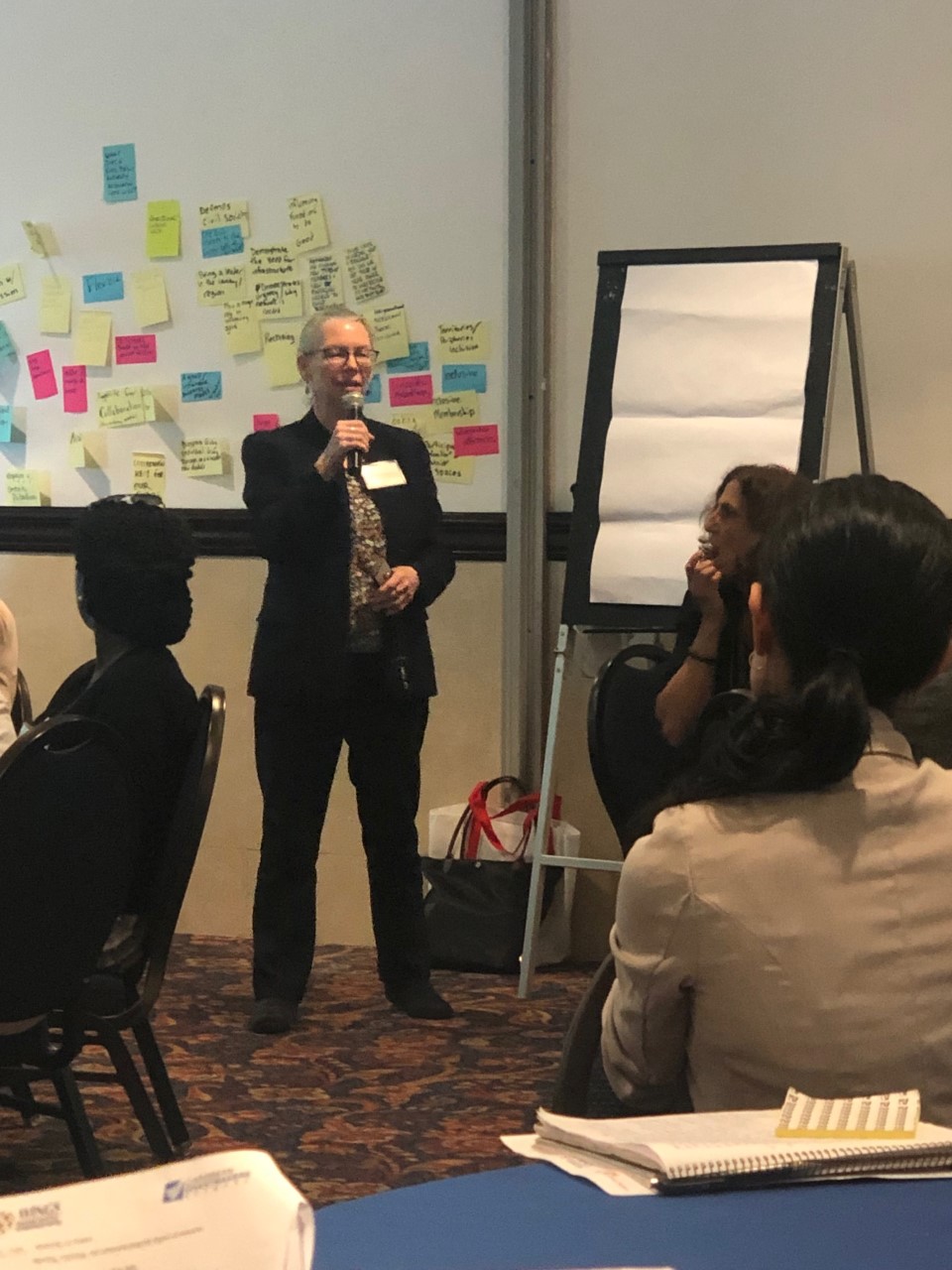The April 2019 Worldwide Initiatives for Grantmaker Support (WINGS) Conference in Kingston, Jamaica offers a glimpse of the extraordinary power of philanthropy to initiate, manage, scale and expand the frontiers of global development. The lush greenery and scenic view of the Strawberry Hill in the Blue Mountains, where the wrap-up session was held, is an enduring reminder of foundations reaching for the moon to make life more beautiful for everyone.
As aptly titled "Driving Philanthropy For the Future: Creating the Networks We Need", the conference brought together an important match of leaders in the world of philanthropy, a community of practice that spawned comprehensive dialogue, ranging from a predictive assessment of how philanthropy could and should look in 2025 to the impact of philanthropic networks globally.
Exploring themes which make up the core of the philanthropic sector, the conference featured illuminating discussions on deeper issues relating to how philanthropy membership associations and networks are evolving in an ever-changing landscape; present challenges of philanthropy associations; innovative approaches to sustainability and business models for foundations and philanthropy support organizations to deliver sharing learnings of what works or otherwise, among others. Intertwined with these were the mentoring sessions, designed to help emerging networks and existing associations tackle common problems and the launch of the Rockefeller Philanthropy Advisors Guides "Philanthropy and the SDGs".

Philanthropy associations moving to the next level require "a combination of newness and experience", and an "ecosystem that thrives on inclusion and diversity", emphasized Barry Knight, the witty facilitator of the session. Reflecting on the significance behind organizing philanthropy networks, challenges of philanthropy associations, and the big questions foundations should answer going forward, Gerry Salole of the European Foundation Center emphasized the need "for a good symbiotic relationship between philanthropic organizatins". Indeed, "a good parasitic relationship benefits everyone", he added.

Listening to the proceedings, I felt the urge to note down a few key take-aways. One valuable lesson is that what used to work may not be sufficient to take us into the future, therefore, we should not box our thinking. Indeed, times are changing, and we appear to be finding it difficult to let go of the past. We should embrace innovation and expand strategic thinking. Equally relevant is taking notice of where we are now, where we want to be, who can help change the narrative and who's championing the interests of foundations? All are critical to addressing enabling environment issues. Hence, it appears to be relevant to use the "flotilla approach" rather than the "armada approach" as referred to by Ingrid Srinath, Director of Social Impact and Philanthropy, Ashoka University.
In addition to this, philanthropy networks and infrastructure support organizations could be more clear in their value proposition to make it less burdensome to recruit and retain members. This is especially the case since having a clear sustainability model and selling points are key to becoming a model organization for others to follow. Current networks and associations should thus consider refining their business model to remain relevant, especially in an era where value add goes beyond simply counting things. Hence, setting winnable milestones are as important as honing a compelling message.
And yes, there was also a "meeting within meeting" between African philanthropy support/architecture organizations (Africa Philanthropy Network, East Africa Philanthropy Network, Africa Philanthropy Forum, SDG Philanthropy Platform, Aga Khan Foundation and the African Youth in Philanthropy Network) on the SDGs and the collaborative framework. Heather Grady, the Vice President of the Rockefeller Philanthropy Advisors, chaired the meeting. Furthermore, the meeting explored the potential for collective, collaborative action through connecting African networks with the SDG processes, embracing the system change lens of providing social interventions versus the project lens, drawing on the WINGS theme of strong philanthropic ecosystems and how it contributes to the effort of individual funders and organizations.

If philanthropy associations and networks continue to work as effective intentional communities, the world would be smaller and the SDGs within reach. Our interconnectedness is key to amplifying our contributions and impact. The WINGS "LiftUpPhilanthropy" campaign provides the opportunity for foundations to raise their profile and that of the broader philanthropy ecosystem in addition to showing the impact.
Photo Credit: WINGS
DISCLAIMER:
The views expressed in this blog are the author's own and do not necessarily reflect those of the SDG Philanthropy Platform. The SDG Philanthropy Platform is a global initiative that connects philanthropy with knowledge and networks that can deepen collaboration, leverage resources and sustain impact, driving SDG delivery within national development planning. It is led by the United Nations Development Programme (UNDP) and Rockefeller Philanthropy Advisors (RPA), and supported by the Conrad N. Hilton Foundation, Ford Foundation, Oak Foundation, Brach Family Charitable Foundation, and many others.
